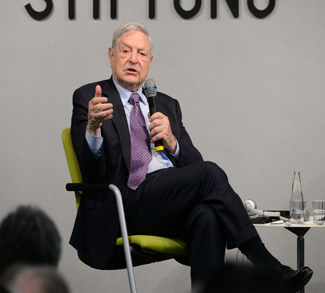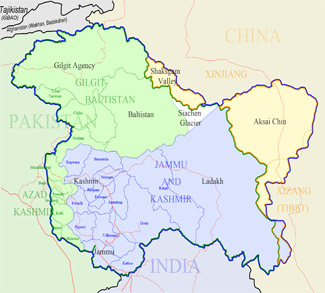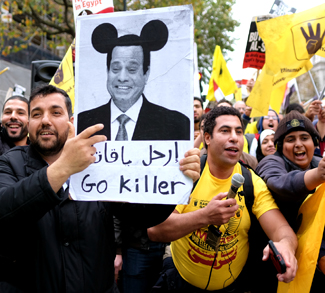The Panama Papers represent the biggest document leak of the modern era, and George Soros apparently has a role.
The scandal that has erupted after the publication of the Mossack Fonseca law firm’s so-called “Panama Papers” was organized by the US Centers for investigations on corruption and organized crime using US government funds and donations from billionaire George Soros, according to “WikiLeaks” – which itself became famous for the dissemination of classified high-profile information.
Wikileaks tweeted: “#PanamaPapers Putin attack was produced by OCCRP which targets Russia & former USSR and was funded by USAID & Soros.”
Therefore, the Panama Papers investigations obtained financial support from the Democracy Fund of the United Nations, the US Agency for International Development (USAID) and Soros’ Open Society Foundation. USAID is the US administration’s central body for managing aid to government and foreign non-governmental institutions.
The Panama Papers, so named because they reveal the dealings of one Panamanian law firm, Mossack Fonseca that has allegedly managed billions of dollars’ worth of filtered assets on behalf of the world’s richest and most powerful. Given the whims of defamation law, we stress that people, fabulously wealthy though they may be, have legitimate reasons for using entities such as Mossack Fonseca.
Therefore, we do not assume that any Mossack Fonseca customer was necessarily breaking any laws. Indeed, forming shell companies does not necessarily prove that anybody has committed a crime. Yet, one of the most obvious aspects of the Papers is that the disclosures largely concern those in disfavor with either Soros or the United States. Not surprisingly Vladimir Putin, whose strategy in Syria has enabled Assad’s forces to erode Islamic State’s stranglehold of Syria, is the most prominent figure.
The Panama Papers have leaked confidential details about a law firm in Panama, a known tax haven, which has handled billions of dollars on behalf of such people as Vladimir Putin and Lionel Messi. The International Council of Investigative Journalists, ICIJ, a transnational group of investigative journalists, has sifted through something like 2.6 terabytes of email, data, documents and images purporting to reveal how the rich and powerful – or some of them – have evaded tax authorities using complex accounting architectures.
The ICIJ, which many believe has received funds from that master of currency collapses George Soros through his Open Society Foundation and the Suddeutsche Zeitung could prompt major political, as well as financial, conflict.
“This is the kind of thing that leads to violence, people getting killed in those countries,” warned Eurasia Group’s Ian Bremmer. “It’s a threat to the rule of leaders and the regimes.” Bremmer cites Russia as one country to watch in particular, as it could respond aggressively to the disclosure.
The Kremlin could find ways to send the insinuations of the Panama Papers back to what it perceives as the senders: the United States, Soros, and the CIA. Could the Panama Papers represent American payback for Russia’s protection of Edward Snowden, Julian Assange and their involvement in WikiLeaks?
The Kremlin has openly accused the OSF and Soros with reason. Soros has feuded with Putin over the OSF’s activities in Russia, especially as the country prepares for the 2018 presidential election.
The Panama Papers contain details of more than 214,000 offshore entities related to people in more than 200 countries and territories, including corporate executives, billionaires, sports stars and possibly even criminal figures such as drug dealers and fraudsters. Twelve current and past leaders were cited including Britain’s Prime Minister David Cameron, President Poroshenko of Ukraine, and the king of Saudi Arabia.
The Panama Papers have already produced their first major victim. Many Icelandic public officials showed up in the Mossack Fonseca internal documents. Among them was Prime Minister Sigmundur David Gunnlaugsson. He is now the former PM, having resigned as the weight of the allegations has taken on unsustainable proportions. The world was shocked at the sudden downfall of Iceland, the role model for financial transparency and a darling of anti-corruption organizations set like Transparency International.
Then there is Russian President Vladimir Putin. The Papers allege that some $2 billion secretly crossed ‘hands’ in transactions between banks and puppet companies with ties to Putin. This includes the names of at least 33 individuals and companies included in the blacklist of the US government, a status owing to evidence of their involvement in illegal activities, including doing business with the Mexican drug lords, organizations that the U.S. deems as ‘terrorist,’ such as Hezbollah and even ‘rogue’ or ‘Axis of Evil’ nations like North Korea.
Indeed, Putin is the name that stands out – even if he’s not actually mentioned. The media have gone on a Putin field fest. It strikes observers as odd that no major American finance names are cited. The Kremlin will surely fight back. It will suggest that the CIA or former State Dept. members have played no small part in the inquiry. They will continue to brand it ‘Putin phobia.’
WikiLeaks has responded, given that the Panama Papers – rather than the Panama ‘leaks’- has stolen the limelight. It noted that the Guardian did not publish anything about the documents citing PM Cameron, stressing instead the Russian president’s affairs. It also complained that the Panama Papers has not released the original sources.
Certainly, the big winner so far is the traditional media, which has taken back, if only temporarily, its role as principal purveyor of information.
As Putin suffers more international scrutiny, will the Panama Papers help protest-candidate leaders such as Donald Trump? The resignation of Iceland’s prime minister will send shockwaves, just as that country did during the financial crisis. Trump, while privileged, is seen as an outsider. He is not a representative of the political elite. He can win over the many angry voters, who have one more reason to dismiss the current batch of elected political officials.
The opinions, beliefs, and viewpoints expressed by the authors are theirs alone and don’t reflect any official position of Geopoliticalmonitor.com.




